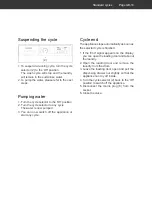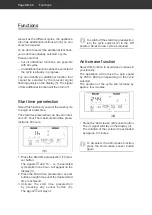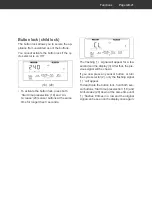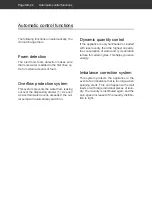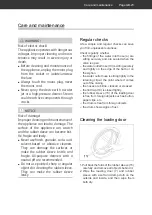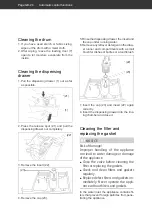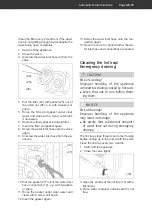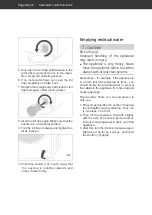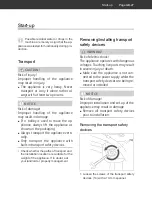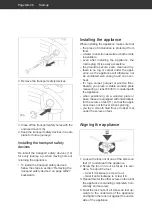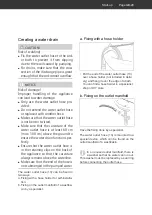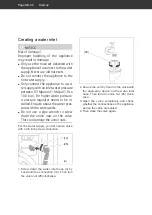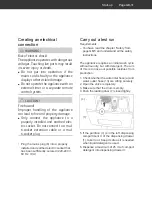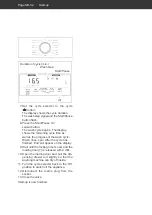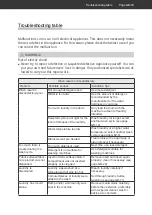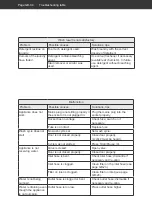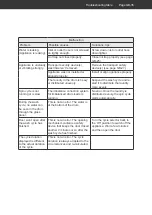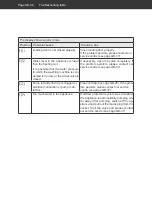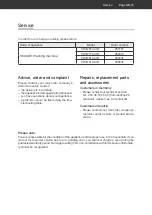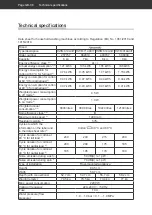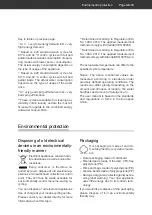
Troubleshooting table
Page GB-33
Troubleshooting table
Malfunctions can occur in all electrical appliances. This does not necessarily mean
there is a defect in the appliance. For this reason, please check the tables to see if you
can correct the malfunction.
WARNING!
Risk of electric shock!
■
Never try to repair a defective or suspected defective appliance yourself. You can
put your own and future users’ lives in danger. Only authorised specialists are al-
lowed to carry out this repair work.
Wash result is not satisfactory
Problem
Possible causes
Solutions, tips
Wash result is
dissatisfactory/poor.
Not enough detergent used.
Use more detergent.
Water is too hard.
Use the amount of detergent
recommended by the
manufacturer for the water
hardness in your area.
Too much laundry in the drum.
Only load the drum with the
maximum amount of laundry
intended.
Selected cycle is not right for the
level of dirtiness of the laundry.
Wash laundry for longer; select
another wash cycle (see page
GB-14).
Water temperature too low.
Wash laundry at a higher water
temperature; select another wash
cycle (see page GB-14).
Stains weren’t pre-treated.
Treat stains with ox-gall soap or
stain remover if necessary.
Too much foam is
created during the
wash cycle.
Too much detergent used.
Next time, use less detergent.
Detergent is not suitable for
washing machines.
Use detergent suitable for
washing machines.
Fabric softener/fabric-
care product was not
dispensed.
Insert in fabric softener/starch
compartment was not inserted
properly or is clogged.
Remove insert and insert again
properly; clean if necessary (see
page GB-24).
Laundry is
discoloured.
Laundry was washed at a
temperature that was too hot.
Bleach laundry carefully if
necessary.
Sort through laundry before
washing (see page GB-11).
Coloured pieces of laundry were
added to the wash.
Laundry has mould
stains.
Damp and/or worn laundry was
kept in the machine.
Remove mould stains carefully
before the next wash, preferably
with a special cleaner. Ask for
advice at a chemist’s.

